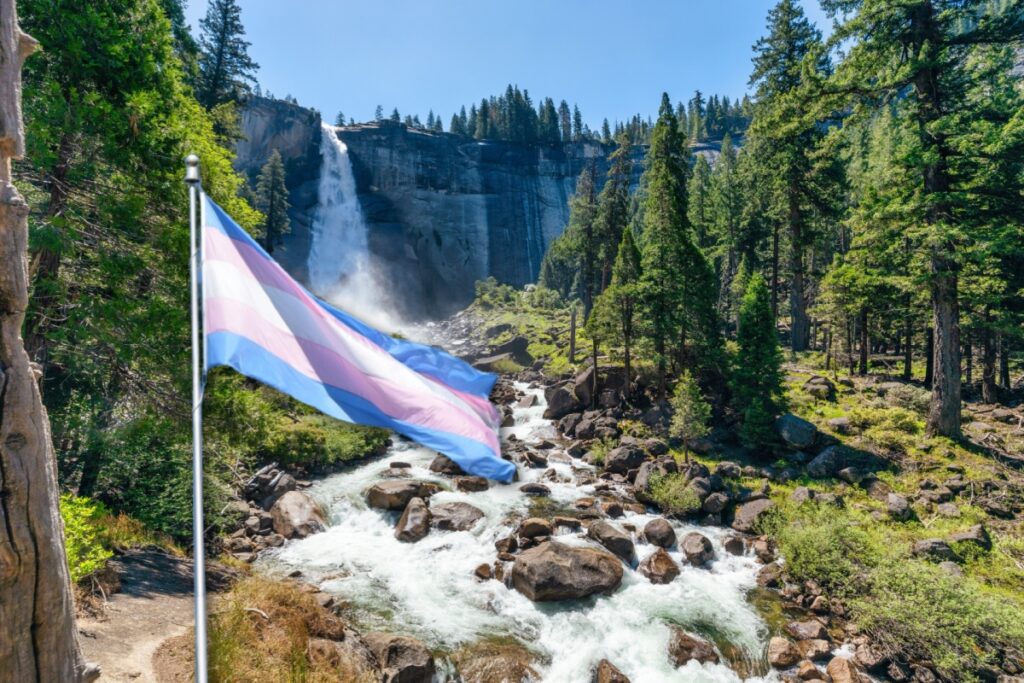Incident and Employment Outcome
A Yosemite National Park ranger, Shannon “SJ” Joslin, who identifies as nonbinary and serves as a wildlife biologist, hung a transgender pride flag, measuring approximately 66 feet wide, from El Capitan for about two hours before voluntarily removing it.
In August 2025, park leadership terminated Joslin’s employment, citing “failure to demonstrate acceptable conduct” in their capacity as a federal biologist working under the National Park Service (NPS). At the time, Joslin remained in a two-year probationary period, a status that grants the agency broader discretion to dismiss employees.
Joslin contends the act was a personal expression of identity, carried out off-duty, and not meant to be an official demonstration They assert that similar displays have occurred at El Capitan in prior years without consequence, suggesting inconsistent enforcement of park policies.
Policy Changes and Legal Flags
Just one day after the flag was displayed, Acting Superintendent Ray McPadden signed a new regulation forbidding the display of any banner, flag, or sign larger than 15 square feet on natural park features such as El Capitan—regulations which, prior to this incident, had not explicitly covered such actions. This new rule was retroactively backdated to the date of the flag display, raising questions about fairness and due process.
While officials maintain that the restriction is necessary to safeguard park resources, protect wilderness character, and ensure visitor safety, critics argue the policy—and its timing—appears retaliatory and politically motivated. The National Park Service confirmed it is pursuing administrative actions against several employees and potential criminal charges against visitors involved in the incident.
Reactions and Impacts
Joslin has vowed to challenge the termination, asserting that it violates their First Amendment rights and characterizing the move as part of a broader attempt to silence dissenting voices within federal agencies.
Advocacy groups such as Public Employees for Environmental Responsibility (PEER) are supporting Joslin and exploring legal options.
The firing has provoked sharp criticism from colleagues and community members. Internal communications described the action as “a direct attack” by the Trump administration on LGBTQ+ employees and free expression. Additionally, Joslin’s dismissal has raised concerns about its impact on Yosemite’s bat conservation programs, which they supervised and which remain vulnerable amid federal hiring restrictions.
Broader LGBT Context Within the National Park Service
This incident unfolds amid a growing tension within the National Park Service around LGBTQ+ visibility and institutional expression:
- In early 2025, the Interior Department rescinded a prior directive encouraging NPS staff to participate in LGBTQ+ Pride activities, including wearing official uniforms, which had previously been supported. This reversal discouraged visible participation in Pride events by agency employees
- The NPS had earlier prohibited uniforms at Pride parades in 2024, prompting backlash. Secretary Haaland briefly reversed that ban, but the policy environment remains unsettled.
- The National Parks Conservation Association (NPCA) documented the removal of multiple educational materials related to LGBTQ+ history from NPS websites, including the deletion of references to transgender and queer individuals in the LGBTQ Theme Study and related content, shifting language toward “LGB” and erasing recognition of the broader LGBTQ+ movement.
- These actions reflect broader executive orders under the current administration, such as Executive Order 14168, which seeks to restrict recognition of gender identity, eliminate funding for gender‑affirming care, and remove usage of “gender” as a concept—policies that have sparked legal challenges and civil rights concerns.
This broader trend coincides with diminishing NPS staffing levels, reports indicate the agency lost about 2,500 employees under this administration, amplifying concerns over reduced institutional capacity and rising pressures on staff expressing marginalized identities.


